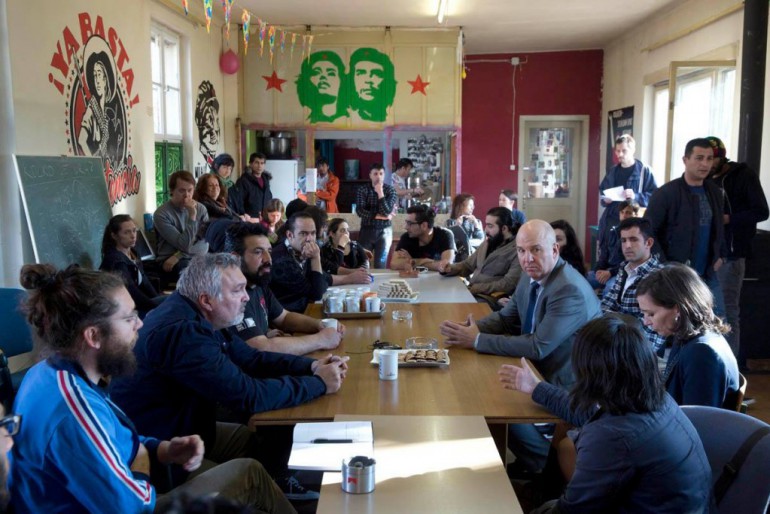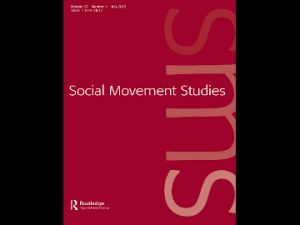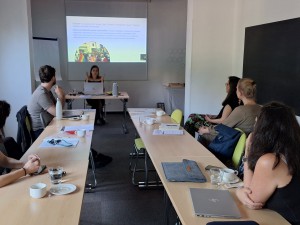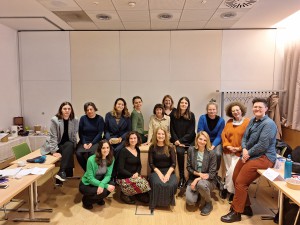“Slovenia should pursue its efforts to protect vulnerable people”
12. 7. 2017 | Human Rights and Minorities, Politics

On 11 July 2017, the Council of Europe Commissioner on Human Rights released a report following his visit to Slovenia earlier this year. The recommendations focus on human rights pertaining to migrants, the Roma community, the “erased”, and people living in poverty. While noting some progress on matters of integration, education, living standards, and legislative framework pertaining to these populations, the Commissioner urges effective reinforcement and sustainability of these positive measures.
Neža Kogovšek Šalamon, Director of the Peace Institute, welcomed the report and underlined its significance for all vulnerable groups in Slovenia, especially the poor, minorities and those discriminated against. “The report, its observations and recommendations show that the Council of Europe Commissioner for Human Rights remains a strong partner of states, civil society and communities living in Europe in protection of human rights standards and their advancement.”

Council of Europe Commissioner for Human Rights Nils Muižnieks met with non-government representatives and refugees who found a social space at the Rog factory squat.
Following his visit to Slovenia from 20 to 23 March 2017, Nils Muižnieks, Council of Europe Commissioner for Human Rights, released a report to shed light on the progress and persisting issues surrounding the rights of migrants, asylum-seekers and refugees, Roma, the “erased”, and people living in poverty. While the Commissioner commended Slovenia’s participation in the relocation and resettlement schemes as well as the establishment of the Government Office for Care and Integration of Migrants (2017), he also highlighted the issues of increased delays on asylum procedures, the alleged consideration of imposition of stricter legislation on family reunification, the vulnerability of unaccompanied minors and their necessity for individualized support, as well as the concern about the quality of services provided to migrants and asylum-seekers. The Commissioner also identified the necessity for implementing pre-integration measures for asylum seekers, such as language courses and the granting of earlier access to the labour market. He encouraged the involvement of refugees in designing integration programmes, and advised Slovenian political figures to avoiding using “language that fuels fear and intolerance”. The Commissioner also made his position clear on the January 2017 amendments to the Aliens Act, asserting that these changes violate Slovenia’s international legal obligations, EU legislation, and the ECHR. He called on Slovenian authorities not to activate the amendments, and to refrain from imposing further legislative barriers to effective adherence to asylum obligations.
With regard to Roma the Commissioner noted that the situation of Roma communities is not homogeneous throughout the country. He noted that the Roma population continues to be a victim of prejudice and in some parts of the country also a victim of poor living conditions – including lack of access to clean drinking water, lack of quality education, and housing difficulties. The Commissioner also expressed concern over the common practice of forced marriage and early pregnancies in Roma communities, which is in violation of international and Slovenian law. Also, the Commissioner recommended curbing the practice by amending the legislation to specify a minimum age for marriage and ensuring the implementation of prevention strategies. Furthermore, the Commissioner encouraged the Slovenian authorities to closely follow the possibility of de facto segregation of Roma children in pre-schools and schools, and to solve the issue of substandard housing settlement conditions through sufficient political will at the local and government levels, with a view to ensuring effective integration. Although the Commissioner observed the strong policy framework on Roma rights and the implementation of projects in areas of rights and integration, he called for reforms of the Roma Community Act, and advised the National Programme of measures 2017-2021 to aim to include “concrete and measurable targets” and ensure adequate funding.
With regard to the “erased” people the Commissioner noted the measures taken by the government to compensate and regularise the victims of these measures. After the passing of the 2010 Legal Status Act, about 10,300 “erased” were able to restore their status after the due procedures. He recommended that the rest of the “erased” persons be given a possibility to integrate into Slovenian society with a regularised status. Furthermore, the Commissioner urged for educational material regarding the “erased” to be included in the national core curriculum of Slovenian schools.
Lastly, the Commissioner addressed Slovenia’s increasing poverty rate since the economic crisis, although with the number of poor people in the country being at 14.5%, it is within the EU average. According to the Commissioner, “poverty is both a consequence and a cause of violations of human rights protected under international and national law, such as the right to work, the right to adequate food, the right to education, the right to health, to housing and the right to an adequate standard of living.” The most jeopardized groups include children in vulnerable families, older persons, the long-term unemployed and working poor. The Commissioner urged Slovenian authorities to consider contextualizing poverty in a human rights-based approach by grounding social policies in the international human rights framework. Further adjustments should include lifting the 2012 austerity measures immediately after the economic growth target is reached, adjusting the minimum wage to suit the current economic context of Slovenia, and refraining from enacting reforms which could be detrimental to the welfare of older persons.




